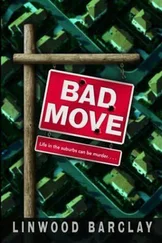We turned inland at a place on a clear palmfringed river called Rio do Fôgo. In a patch of richer appearing country with little plantations of papaya and manioc and banana we ate lunch at a long table in the breezeway of a wellkept schoolhouse in the midst of a great crowd of bystanders. The children and old men and women watched every mouthful. The staple here seems to be tapioca instead of rice. All along this coast they bring you green coconut water to drink, a delight because the sun is hot and the dust parching.
During the afternoon, having changed back to the cars that had come through back roads to meet us we drove through some of the most depressing inland country I had ever seen. Agave grown for fiber was the main crop. Often there was no other vegetation. The plantations were indicated by rows of dreary hovels with fiber in heaps beside them. Men, women, and children had a drab and dusty look.
We reach a real jumping off place, in the midst of a vast sunsmitten plain. Two straggles of dilapidated shacks form a sort of crossroads — only there isn’t any real road — with a tin windmill to pump water at the intersection. The windmill has broken down. The broken parts are mournfully brought out for the governor’s inspection.
The landowner looks almost as badly off as his tenants. “I wouldn’t live here,” he says with some bitterness, “except that it’s the only land God saw fit to give me.”
It was dark by the time we reached Touros. Touros was a goodsized fishing town on the beach. The people seemed full of beans. A band played. Floodlights lit the speakers’ platform set up in the square across from a recent monument attractively contrived out of aluminum sheets to simulate a jangada. The firmament resounded with the explosion of rockets and, fortunately at some distance, behind the church, somebody set off bombs so loud they must have been sticks of dynamite.
Aluísio Alves was at his best. He told us about his last visit to Touros in the course of an unsuccessful campaign and how he got there late and the people waited all night to hear him, and how their friendliness had cheered him. He told of the three years of work that still lay ahead of him in his battle against disease and illiteracy. Eighty per cent couldn’t read or write. Ninetyeight per cent suffered from schistosomiasis. Of every two children born, one child died in infancy. “People of Touros, with your help we shall change all this — our campaign is the campaign of hope.” And the green pennants waved.
The governor and his party were to be put up in a small house perched on a sand dune. Half the population of Touros had gotten there ahead to receive us. In fact they had eaten up most of the dinner laid out on a variety of tables set end to end. About all that was left was a little spaghetti, still cold in the can. There was one chair for the governor, but no more.
The porches were full of boys and girls who had come from interior towns to the speaking. The problem was where people would sleep. There were no beds and few cots and hammocks. As the large monsignor and I were the oldest, we were assigned to the privacy of a tiny leanto which housed tools back of the house. A cot was found for me and an effort was made to swing a hammock above it for the monsignor. Alas, we were both large men. There was no way of fitting us into the space. The monsignor handsomely retired and I was left alone. God knows where he slept. It was just as well I was out in the leanto because the racket in the house was indescribable. Everybody in town wanted to speak to the governor.
The governor went off to a dance given in his honor. He had addressed the crowd about two dozen times during the day. He had just finished a fulldress oration. He had driven eight or ten hours through the heat and the dust. He is a rather slight man. He must be made of iron.
Mossoró, September 16: the Long Long Sunday
A heavy shower of rain on the roof woke me at about four-thirty. When the rain stopped rockets started hissing up all around the house and exploding in the sky overhead. They have the loudest rockets in Touros I’ve ever heard. I mucked around in the yard behind the kitchen, awash with thin mud from the rain, in search of the washbasin. There was only one. Shaved among the awakening teenagers on the porch looking out on the long slow green spuming waves advancing towards the beach below the house out of a pearly ocean in the morning twilight.
Met our hosts. In the hubbub last night I didn’t have a chance to sort them out. The reddish-haired stocky man must be the paterfamilias. There are various sons, one a young man on crutches. The two elderly women stoking up a small charcoal brazier in the kitchen must be the maids. Nobody seems to be disturbed by the house having been turned last night into something like the New York subway at rush hour. We have to admit that the accommodations are plain.
Sitting on packing boxes at the table the large monsignor and I are regaled with a breakfast of eggs, toasted cheese, black coffee, and bread. Couldn’t be better.
Then we take an early morning stroll around the town in the governor’s train. Touros looks more modest by day than it did in the light of the floodlights. Squarish blocks of stucco houses. Sand in the streets. These strolls around town accompanied by the local authorities are part of the program at each place we stop. Anybody who feels like it comes up to speak to the governor. He listens to them all, old and young, rich and poor. He listens with a serious air, with an occasional wry smile. If it’s a matter of some detail a secretary steps up to take notes. Aluísio Alves is a man of few words except when he is delivering a speech.
The mayor of Touros wants us to visit the school but it’s Sunday and no one can find the key. At last an intelligent-looking old woman arrives breathless. Everybody helps her as the big key is hard to turn and the doubledoors stick. She must be over seventy but I think she’s the schoolteacher.
By the time we have toured the schoolrooms the cars have lined up outside. Governor Alves gets into the seat next the chauffeur with his green handkerchief fluttering and we are off. It is a long drive, over a decent gravel road that shows signs of fresh repairs, to what I’m told is the world’s largest agave plantation. The company has an English name. There is an endless row of company houses — all alike, bleak, unshaded, of cracked stucco — but the fact that they are houses is a cause for admiration. There are long warehouses, piles of sisal drying (this is not hennequen but an agave that produces a very similar fiber), and an airstrip.
Two small planes, one the governor’s Cessna, are waiting for us. Those who can’t fit into the planes will follow by road. When we take off we can really appreciate the immensity of the plantation. A checkerboard of the spinyleaved agaves spreads in every direction over the rolling hills. We fly inland.
At São Miguel the country is even hillier. The people waiting for us at the airstrip are welldressed. Everything looks more prosperous. Abraços, felicidades. Great enthusiasm. This is the township where Aluísio Alves was born. Local boy makes good. Every face beams with a personal pride in him. We are driven into town. The greeting throng follows in a truck, a few of them on sleek caramelcolored ponies.
This is the longstaple cotton region. Perennial cotton was introduced by British companies some forty years ago. The country looks like Arizona with rosy desert mesas and flowerlike formations of gray rock. The air is dry. There is a crispness to the breeze although the sun is plumb overhead.
At São Miguel we sit at a table with a clean cloth and eat a second — or is it a third? — breakfast. When someone speaks of more milk, the girl who is waiting on us smilingly brings in a large pitcher of milk from the electric refrigerator in the back room. On the coast where we were nobody would have dreamed of milk. That pitcher of milk is more eloquent than a dozen speeches. After the sight of such poverty it is a real pleasure to be among prosperous people again.
Читать дальше












